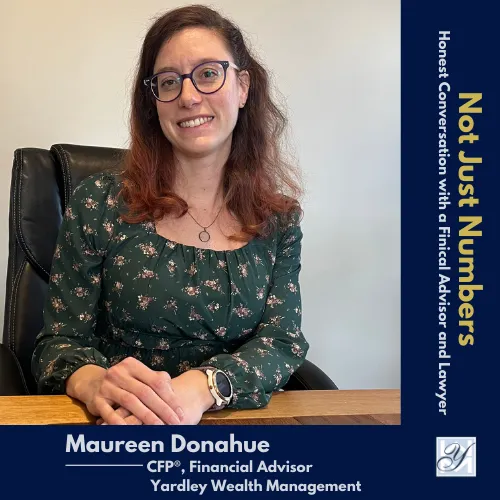Episode 23: Tax Planning Strategies in Your 60s
Hosts: Madison Demora and Mike Garry
Guest: Maureen Donahue, CFP®
Financial Advisor
Episode Overview
In Episode 23 of “Not Just Numbers,” hosts Madison Demora and Mike Garry explore the nuances of tax planning strategies for individuals in their sixties. Mike, a seasoned financial advisor and estate planning lawyer, delves into the specific financial planning opportunities and considerations for this age group, emphasizing the importance of strategic tax bucket planning. The episode also features a spotlight on Maureen Donahue, a new addition to the Yardley Wealth Management team, discussing her transition and role within the firm.
Listen to Our Podcast On:
Timestamps
- 00:37 – 06:11 – Tax Planning in Your Sixties: maximizing contributions, strategic withdrawals, and investment planning
- 06:12 – 13:30 – Tax-Efficient Investment Strategies & Required Minimum Distributions (RMDs)
- 13:31 – 17:29 – Intersection of Tax Planning with Estate Planning & Common Pitfalls
- 17:39 – 36:25 – Employee Spotlight on Maureen Donahue, CFP®
Follow Us on Social Media
Stay updated with the latest episodes and news by following us on social media:



